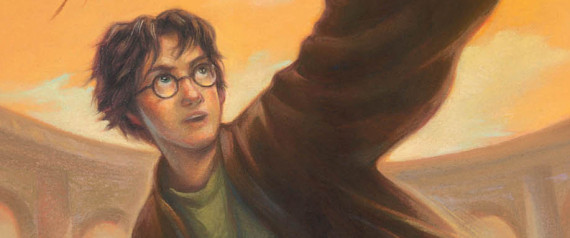The Huffington Post | By Maddie Crum
Posted:
Hemingway famously rewrote the final sentence of A Farewell to Arms over 40 times. Among his alternate endings are a short, pleasant scene in which he holds his newborn son in his arms, and a bleak, Holden Caulfield-like rumination on the agony of fond memories. One is so romantic that it could've undone the author's reputation for brusqueness. It reads: "... Finally I slept; I must have slept because I woke. When I woke the sun was coming in the open window and I smelled the spring morning after the rain and saw the sun on the trees in the courtyard and for that moment it was all the way it had been..." As fans know, he opted instead to have his protagonist go for a stroll in the rain alone.
When asked about his indecision, he quipped that he was chiefly concerned with "getting the words right," which is no small task when it comes to penning an ending. Fans are more likely to take issue with a novel's conclusion than any other part of the story -- it is their last chance to interact with the characters, after all.
Not every author imparts a sense of catharsis, happy or otherwise, the way Hemingway did with A Farewell to Arms. Readers seem to abhor endings that involve characters they've become invested in winding up with the "wrong" romantic partner. What's worse: vague cliffhangers. After reading An Imperial Affliction, a sort of story-within-a-story at the center of John Green's The Fault in our Stars, Augustus Waters panics: "Tell me my copy is missing the last twenty pages or something. Hazel Grace, tell me I have not reached the end of this book. OH MY GOD DO THEY GET MARRIED OR NOT OH MY GOD WHAT IS THIS?!" He's referring to the book's final page, which ends in the middle of a sentence, and without explaining what becomes of many of its beloved characters. Augustus is grasping not for a happy ending necessarily, but, at the very least, for closure.
Ruth Graham cites this scene in her argument against adults reading YA books, stating life isn't neat, so literature shouldn't be either. A glaring counter-argument: Sometimes life is neat, so sometimes books should be, too.
So if happy, unhappy and uncertain endings are all acceptable under the right circumstances, what makes an ending bad? In general, an unsuccessful ending involves a disruptive departure from the tone of the rest of the book; when we've spent a good deal of time with a story, we expect that its conclusion isn't jarringly out of place.
By those standards, here are 8 of the most disappointing endings in books:

No comments:
Post a Comment